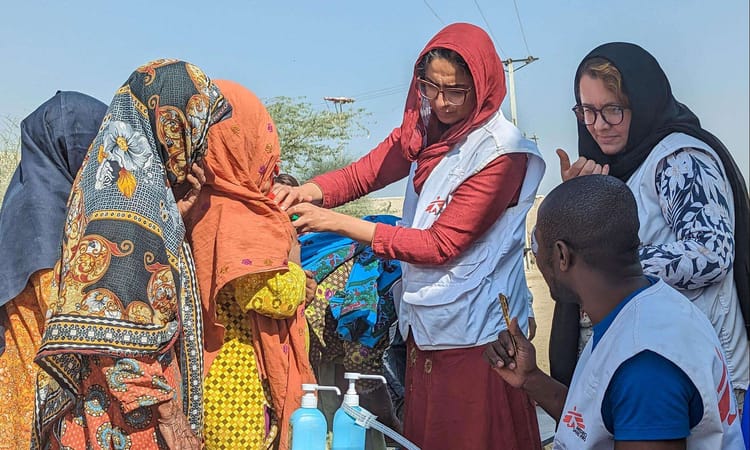No Longer "Not Enough": 5 Ways to Stop Invalidating Yourself This New Year

As we near the end of January, we also near the end of a lot of New Year’s resolutions that won’t last beyond the next few days. These resolutions can start off as motivating but often morph into a form of excess pressure for many people who have taken up resolutions under social pressures or the expectation that they need to be a certain way, and letting go of these resolutions can come with a sense of failure, of thinking you’re ‘not enough’ for being unable to see them through. For many South Asians this feeling of “not enough” runs a lot deeper, and can often be tied to their identity and the way they see themselves, making it last long after the New Year Resolutions have died down.
After all, South Asians will always tell you that they’re connected to their culture, that the culture they are raised with is an intrinsic part of their identity. One tied deep into the threads that form their sense of self, and their connection with their community.
That all-important, identity defining culture is always focused on the collective, on the concept of ‘selflessness’ and on appeasing to the community. There’s phrases we often grow up hearing.
“Be grateful. XYZ has it so much worse than you”
“Log kya kahein ge. You can’t let them see you like this”
“Sabr Karo”
What we don’t realise is how often we end up invalidating ourselves to appease to these cultural expectations and practices - leading to long term emotional harm for not only ourselves, but the communities we build around us.

Here’s 5 ways we may not realise we are invalidating ourselves and how to help us break out of them.
Forcing Positivity
“Don’t Complain, Stay Positive”
“Shukar Karo, atleast uss jaisa haal tau nahin hai”
By forcing positivity where it may not come naturally teaches us to feel guilty about our emotions, and we get into the habit of dismissing healthy and natural emotional responses, both for ourselves and others. This can turn into a cycle of unhealthy emotional regulation, that can unknowingly be passed down to generations
How to prevent it: Learn to listen to yourself and others who may be expressing emotion. Instead of covering it with positivity try and understand where the emotion is coming from.
Victim Blaming
“Zaroor Tumne Kuch Kya Ho Ga”
“You triggered this reaction”
“Tumhari waja se mujhe ghussa aya hai”
When we victim blame, even in small situations we open the door for allowing and justifying harmful and abusive behaviours. We show victims that it’s their fault instead of calling out the actual problematic behaviour. This leads to a silencing of those who are struggling
How to prevent it: Listen when someone is telling you something is wrong. Don’t get defensive if they are asking you to change behaviours. Call out victim blaming in social situations.

Invalidating Homemakers/Care Work
“What do you do all day”
“My mom sits at home all day, she doesn’t do anything thing”
“I’m JUST a housewife”
Invalidating women’s home work and care work leads to them feeling lesser than. It can cause young girls to limit their ambition and desires from a young age as they may feel like they are not enough.
How to prevent it: Appreciate the efforts made by the women in your life. Avoid social jokes that make homemakers/carers the butt of the joke. Don’t invalidate yourself or others who are homemakers, and learn to carve out time for yourself that can help you recharge
Silencing Emotions
“Don’t Overreact”
“Stop being so sensitive”
“Why are you making such a big deal out of this”
We often silence emotions as a result of being told from a young age that crying is wrong, and not being given words to express our emotions. We often find ourselves uncomfortable when someone displays emotions which leads to creating a sense of shame around expressing emotions
How to prevent it: Teach children words to express their emotions from a young age, that can help them in healthier emotional communication as they grow up. When someone is expressing an emotion, don’t dismiss it. Instead ask them questions to get to the root of why they are feeling a certain way.

Ignoring Problems
“Baat karne ka koi faida nahin hai”
“Bas chor do, khud hee theek ho jaye ga”
“Let it take it’s course”
We love brushing issues under the rug, and assume life will sort itself out. This can lead to pent up emotions over time that can lead to burnout, or unregulated displays or anger. It also causes emotional buildup that can cloud our judgement and create past trauma that can affect future situations.
How to prevent it: Deal with issues as they come. This can include communicating your feelings in a healthy manner or setting boundaries that allow you and the other side to feel heard and respected. Plan out conflict or confrontations that seem daunting if you don’t know what to say.
Unlearning generations worth of unhealthy coping mechanisms isn’t easy, but community support and efforts will go a long way towards change.
Anmol Irfan is a freelance journalist, editor and the co-founder of Echoes Media. Her work focuses on marginalised narratives in the Global South, looking at gender, climate, tech and more. She tweets @anmolirfan22






Member discussion